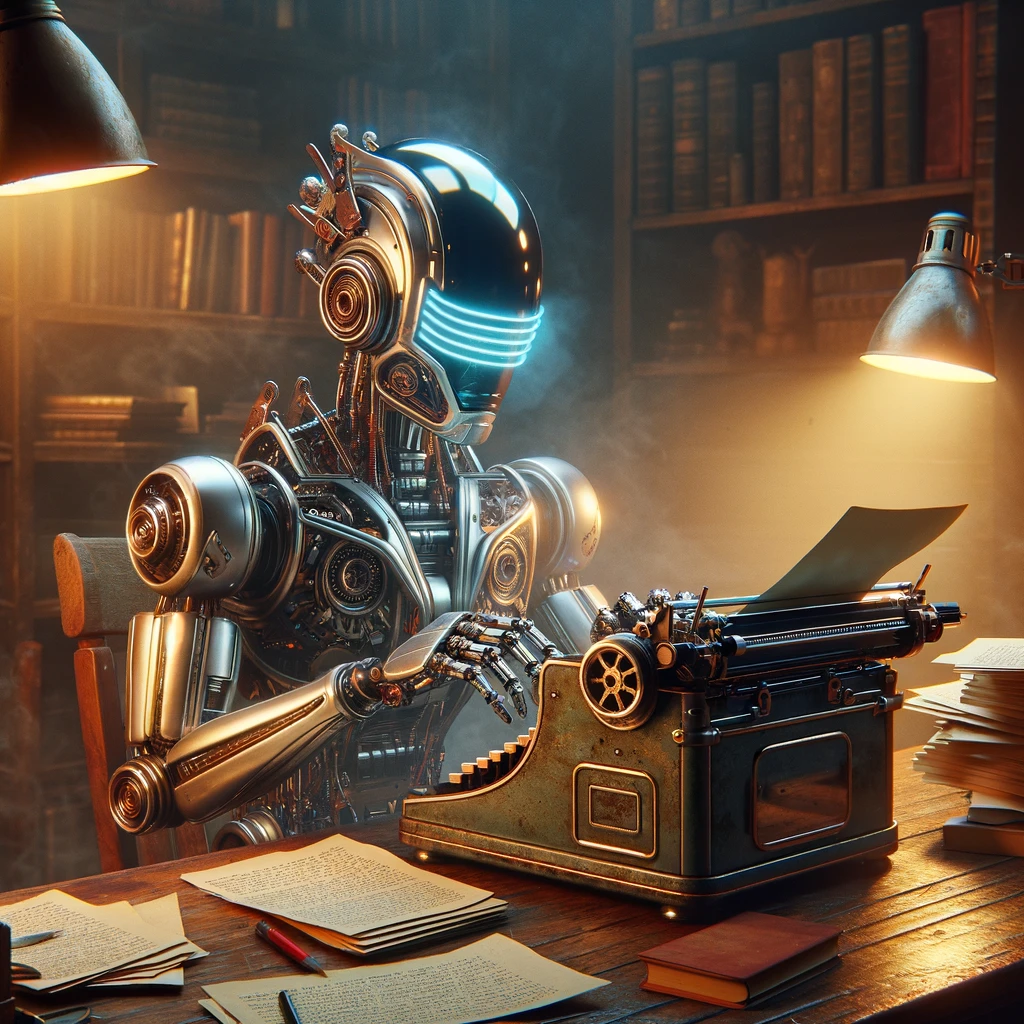I’ve been spending a lot of time on LinkedIn lately as I navigate the highly competitive job market. I won’t lie–I have used ChatGPT in my job search. Full disclosure: AI did not write this article. I did. (Dall-E did provide the featured image.)
Before I dive into AI I want to talk about writing. Not everyone is a great writer in English. I recently received a glowing recommendation on LinkedIn from a former employee for whom English is a second language. Part of me wished he wrote it with typos and all because it might appear more genuine. Except that knowing how AI works I am certain he put some effort into crafting a prompt with details about how he experienced working with me, mentoring, and career coaching. AI spit out the final product, but he gave it the inputs.
I grew up in the United States in a middle class family where both parents had Masters Degrees in education. My father was a published author. I’ve always enjoyed reading and writing, done well in school and taken creative writing classes in college. I take pride in the fact that I can write well and communicate with the written word–whether it’s an email, Slack message, Confluence page, year end review, or commit message.
Not everyone is so fortunate. So it seems to me that a tool like ChatGPT can help take some raw input and produce polished output. This can really level the playing field for some people!
As a job seeker I find ChatGPT to be an invaluable tool. First and foremost I use it to review my cover letter and resume for typos and word choice. It’s like having a collaborative editor. But sometimes there is a little writers block and it can be useful to provide the job description, some notes on how your experience is a good fit for the role, and then take the result and make it one’s own. Much of the time the output sounds too polished, too generic, and too insincere. However, I’ve found it’s a starting point.
Take the AI-generated content and make it your own. Think of it as a framework and add in your own experiences and wording. In a resume or cover letter nothing will substitute for your own experience and voice.
This brings me to my last observation. I’ve seen a lot of LinkedIn posts from recruiters and hiring managers to the effect of “if I think you used AI I’m going to reject your application.” I can’t help but think how unfair that is to talented people for whom English is a second language, or who perhaps don’t have the same flair for expressing themselves in writing in English.
AI is a tool. We’re all still learning how to use it and navigate this radically changed landscape–whether it’s writing code or cover letters. Let’s try to assume good intent. Sure some people will probably use AI to do their homework, but others might use it to help level the playing field a bit and make sure their resume makes it through the scanners… and you never know if that polished cover letter you threw out was crafted with care by a talented writer.
